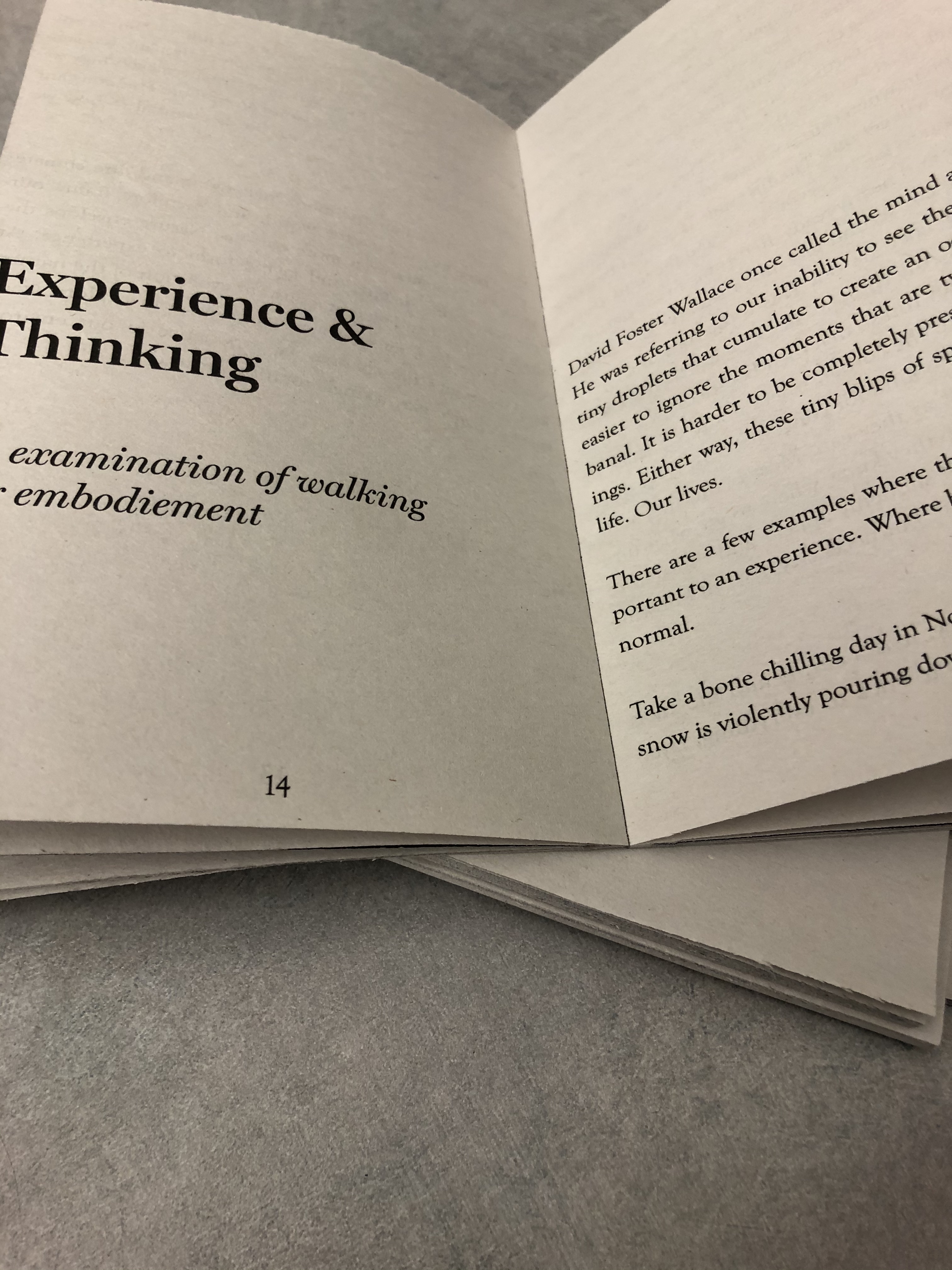Alex Klein
Seasonal Book Series
A series of five books, encouraging awareness of nature’s subtle changes as a means to transform the way we think about our climate crisis. The work was completed as part of a final project for a seminar on philiosophy of design.


“The entirety of the series was written with the conviction that the human experience begins and ends with the physical environment. Not simply what we touch and feel, but as a container where so much of our lives occur.”
The series of books is about seasonal shifts and changes. Spring, Summer, Autumn, Winter and Transitions encourage awareness to the natural environments we live in. Together they seek to illuminate the role of the physical world on our experiences and aid in examining the relationship between experience and thought. Each book begins with the same overview, building a foundation from which to see seasons.
One of the greatest gifts of humanity is our ability to think. The mind and its mysterious power has intrigued generations. You need not look far to find commentary on the mind, whether in academia, literature or laymen vernacular: “What were you thinking?!” “Are you out of your mind?” “She is brilliant”. How we think, and the formation of thought, has generated entire areas of study. Where we live permeates how we conceive of ourselves and the world around us. This constant correlation often goes unnoticed, but is essential to how we frame our ideas.
When faced with an ever-more challenging and dire climate crisis, how we tune to the world and therefore frame our thoughts, becomes even more curious. Nature envelops the physical world, shaping and giving form to experience. At once beautiful, bountiful and violent, the status quo of the natural world we live in provides a lens through which we can explore. Each book examines the changes we experience in our environment as Earth takes a single rotation around the sun.
Take a look around, recognize that even buildings themselves are composed of materials, materials that derive from compounds, compounds that are found in nature. Deepening a relationship to nature, then, is a deepening of our relationship to everything around us.
Like all transitions, tuning to an ecology of the mind takes time. If we use the season’s as a measure, every major shift occurs in six-months. Perhaps that is a fair amount of time to attempt to cultivate a new awareness. But, if not, this series exists as a guide to noticing. To return time and again to stillness, an alertness and a walking perspective. Just as we can sit and notice our breath, we can look at waves and see the world around us breath. Just as summer will eventually evolve into winter, returning is a key component to a successful transition. Walk often, notice more often and observe how this changes your way of thinking.
Bibliography:
Bateson, Gregory. Steps to an Ecological Mind. Chicago, IL: University of Chicago Press, 1972.
Berry, Wendell. The World-Ending Fire. London, UK: Allen Lane, 2017.
Carson, Rachel. Under the Sea-Wind. London, UK: Penguin Group, 1996.
De Botton, Alain. The Architecture of Happiness. New York, NY: Random House Inc., 2006.
Gooley, Tristan. How to Connect with Nature. London, UK: Macmillan, 2014.
Haas, Elson M. M.D. Staying Healthy with the Seasons. New York, NY: Random House, 1981.
Kabat-Zinn, Jon. Wherever You Go There You Are. New York, NY: Hyperion, 1994.
Morton, Timothy. Being Ecological. Cambridge, MA: MIT Press, 2018.
Thoreau, Henry David. Walden. New York, NY: Penguin Signet Classics, 2009 (originally published 1854).


Contact
alexpaigeklein@gmail.com